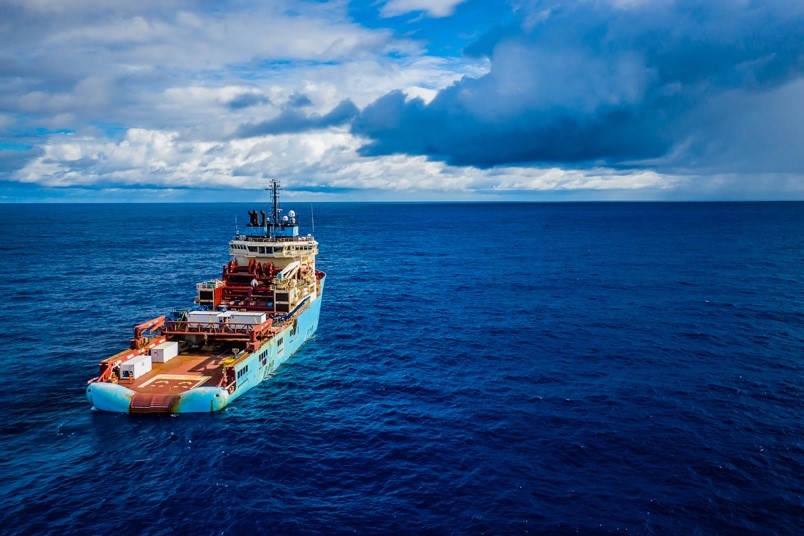Global S&T Development Trend Analysis Platform of Resources and Environment
| Naura puts UN on two-year deadline to make deep-sea mining rules | |
| admin | |
| 2021-07-02 | |
| 发布年 | 2021 |
| 语种 | 英语 |
| 国家 | 国际 |
| 领域 | 地球科学 |
| 正文(英文) |  DeepGreen plans to extract cobalt and other battery metals from the seabed. (Image courtesy of DeepGreen.)
The small Pacific island nation of Nauru made waves this week when it notified a United Nations (UN) body of plans to start deep-sea mining, giving the International Seabed Authority (ISA) two years to complete long-running talks on rules governing the new and controversial industry. Nauru planned to trigger the “two-year rule”, which allows for a mining plan to be approved after two years under whatever rules are in place at that time. The ISA, headquartered in Jamaica, has drawn up regulations on exploration, but has yet to establish the rules for exploitation needed for mining to go ahead. Nauru President Lionel Aingimea notified ISA about the mining plans to be carried out by a subsidiary of The Metals Co. in a letter dated June 25, Reuters reported. Nauru is a sponsoring state for Nauru Ocean Resources Inc (NORI), a wholly-owned subsidiary of The Metals Co, formerly known as DeepGreen Metals, which plans to list on the U.S. Nasdaq in the third quarter in a merger with blank-check company Sustainable Opportunities Acquisition Corp (SOAC). DeepGreen said it believes that producing critical battery metals from polymetallic nodules has the potential to eliminate or dramatically reduce most of the environmental and social impacts associated with traditional mining. Nauru, with 12,000 inhabitants, said 80% of its land was uninhabitable because of colonial-era phosphate mining and deep-sea mining was more sustainable. The Metals Co has said deep-sea mining would have less impact than mining for battery metals on land. “Sustainability conundrum”Some environmentalists have called for a ban on deep-seabed mining that would extract resources including copper, cobalt, nickel, zinc, lithium, and rare earth elements from nodules on the ocean floor. Sea floor nodules contain battery metals needed to fuel the world’s transition to clean energy, but trawling the sea floor for them is likely to disrupt ecosystems about which there has been scant research, as they are very difficult to reach, according a report commissioned by the High Level Panel for a Sustainable Ocean Economy. The report authored by six academics said deep seabed mining was a “sustainability conundrum.” The advanced exploration stage Nori Clarion-Clipperton polymetallic project, about 4,000-4,500 metres deep into the northeastern part of the Pacific Ocean is named after the seafloor zone between Hawaii and Mexico, and is part of international waters. The exploration contract is held by NORI, but DeepGreen Metals has exclusive access to the area. The 4,000-kilometre swath of ocean is known for containing enough nickel, copper, cobalt and manganese to build over 250 million electric vehicle batteries. The ISA, in a statement, acknowledged Nauru’s letter and said it aimed to resume this year work on mining regulations, which had earlier been delayed due pandemic travel restrictions. (With files from Reuters)
|
| URL | 查看原文 |
| 来源平台 | Minging.com |
| 文献类型 | 新闻 |
| 条目标识符 | http://119.78.100.173/C666/handle/2XK7JSWQ/331082 |
| 专题 | 地球科学 |
| 推荐引用方式 GB/T 7714 | admin. Naura puts UN on two-year deadline to make deep-sea mining rules. 2021. |
| 条目包含的文件 | 条目无相关文件。 | |||||
| 个性服务 |
| 推荐该条目 |
| 保存到收藏夹 |
| 查看访问统计 |
| 导出为Endnote文件 |
| 谷歌学术 |
| 谷歌学术中相似的文章 |
| [admin]的文章 |
| 百度学术 |
| 百度学术中相似的文章 |
| [admin]的文章 |
| 必应学术 |
| 必应学术中相似的文章 |
| [admin]的文章 |
| 相关权益政策 |
| 暂无数据 |
| 收藏/分享 |
除非特别说明,本系统中所有内容都受版权保护,并保留所有权利。
修改评论